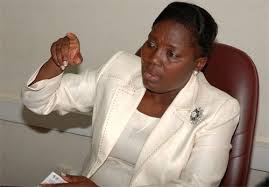
Kampala-Speaker of Parliament, Rebecca Alitwala Kadaga has signed a charter on menstrual hygiene at Parliament today May 28,to mark the menstrual hygiene day.
The charter intends to persuade government to come up with policies that can help school girls who undergo menstruation periods manage the challenges that come with it.
The charter was signed by a consortium of Non-Government Organizations providing menstrual hygiene support services. The organizations include Eco pads, AfriPads, Fields of Life and the menstrual hygiene management.
According to the national coordinator of AfriPads in Uganda,Helen Walker, menstrual hygiene is a very sensitive issue that requires a lot of attention to help girls focus and stay in school.
“What we are doing is to raise awareness that the girls do not have access to these sanitary materials because they are expensive and sometimes inaccessible,” Walker said.
Walker says that a number of girls in rural areas of developing countries like Uganda do not have access to proper sanitary pads and as a result they end up using rags and pieces of clothes that do not help much. She says the menstruation hygiene day is in place to raise awareness about the need to break the silence on menstruation.
The menstrual hygiene day celebrations started with a march from Nakawa to Parliament where they signed the charter, and after went to the National Theatre where pupils and students from different schools presented in songs and drama.
In August last year, the State Minister of Primary Health, Sarah Opendi, launched a reader titled “understanding and managing menstruation”, to teach primary school girls how to manage their menstrual periods, in a bid to reduce the number of school drop outs.
Menstrual hygiene is not only crucial for women or girls’ well-being and dignity, it is also a fundamental part of basic hygiene that every woman or girl has a right to.
According to a study on menstrual management in Uganda, by Netherlands Development Organization (SNV) and International Water and Sanitation Centre (IRC), 62 percent of the pupils in the schools sampled absent themselves from school during their menstruation periods. 42 percent do not come to school and 76 percent are not satisfied with the menstrual facilities provided at school.
The study was carried out in seven districts which include Arua, Adjumani, Bundibugyo, Kasese, Kyenjojo, Lira and Soroti.







